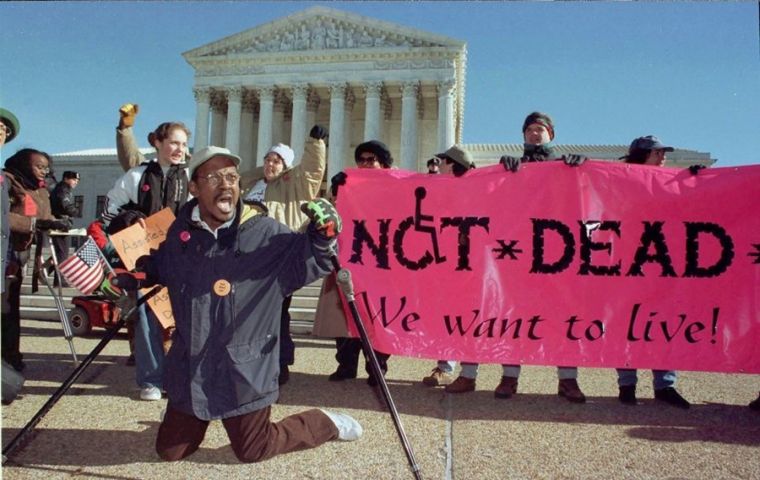Doctors sue Vermont over assisted suicide law that violates their right of conscience

Health care professionals have filed a lawsuit challenging Vermont's assisted suicide law, saying the latter compels them to counsel patients about the option to end their lives in "violation of the right of conscience."
The lawsuit was filed by the Vermont Alliance for Ethical Healthcare and Tennessee-based Christian Medical and Dental Association on July 19 against the Vermont Board of Medical Practice, Vermont Secretary of State James Condos and the Office of Professional Regulation regarding their interpretation of Act 39 or the Patient Choice and Control at End of Life Act, Christian News Network reports.
According to the lawsuit, although it was "passed with limited protections for conscientious physicians, Act 39 and a separate existing mandate to counsel and refer for 'all options' for palliative care have been construed by State medical licensing authorities, including Defendants, to require all healthcare professionals to counsel for assisted suicide."
In its FAQs on Act 39, the Vermont Health Department said, "Do doctors have to tell patients about this option? Under Act 39 and the Patient's Bill of Rights, a patient has the right to be informed of all options for care and treatment in order to make a fully-informed choice. If a doctor is unwilling to inform a patient, he or she must make a referral or otherwise arrange for the patient to receive all relevant information."
Plaintiffs said the government's interpretation is that physicians have a duty to inform patients on the availability of assisted suicide.
Through Act 39, they said, Vermont became the fourth state after Oregon, Washington and California to legalise assisted suicide but the first state to mandate all health care professionals to participate in the practice.
"The provisions of Act 39 require Plaintiffs' members to promote the State's view that physician assisted suicide is indicated in all instances of 'terminal conditions' and force them to counsel patients for physician assisted suicide in violation of the right of conscience, and threaten them with professional, civil and criminal consequences for holding opposing views," the lawsuit added.
It said the law "imposes a substantial burden on Plaintiffs' members' religious beliefs."
They are asking the court to declare the law as "facially overbroad, vague and ambiguous in violation of the First and Fourteenth Amendments" and Church Amendments and the Affordable Care Act.











